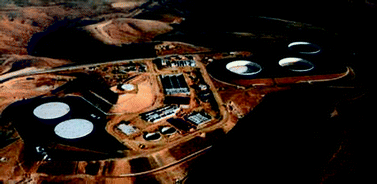A review on applications of nanoparticles for the preconcentration of environmental pollutants
Abstract
Advances in nanoscale science and engineering suggest that many of the current problems involving water quality could be resolved or greatly improved using nanoparticles. Currently, the most widely used method for the removal and separation of toxic metal ions/organic compounds is the solid phase extraction technique. Recently, there have been reports in the literature on the enrichment and separation of trace elements and organic compound in the sample solutions by means of nanoparticles like TiO2, Al2O3, ZrO2, MnO and CeO2. Nanoparticles have unique properties like large specific surface area, high adsorption capacity and low temperature modification, so they are promising solid-phase extractants and have contaminant scavenging mechanisms. This feature article includes research work concerned with preparation, characterization and application of nanoparticles in preconcentration, separation and determination of trace pollutants from various environmental samples.


 Please wait while we load your content...
Please wait while we load your content...